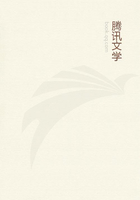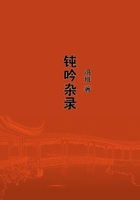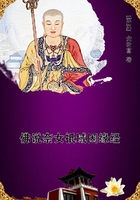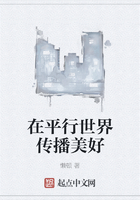The rest of the cabinet consisted of men of less eminence, who subordinated themselves more easily. In January, 1862, Lincoln found it necessary to bow Cameron out of the war office, and to put in his place Edwin M. Stanton, a man of intensely practical mind, vehement impulses, fierce positiveness, ruthless energy, immense working power, lofty patriotism, and severest devotion to duty. He accepted the war office not as a partisan, for he had never been a Republican, but only to do all he could in "helping to save the country." The manner in which Lincoln succeeded in taming this lion to his will, by frankly recognizing his great qualities, by giving him the most generous confidence, by aiding him in his work to the full of his power, by kindly concession or affectionate persuasiveness in cases of differing opinions, or, when it was necessary, by firm assertions of superior authority, bears the highest testimony to his skill in the management of men. Stanton, who had entered the service with rather a mean opinion of Lincoln's character and capacity, became one of his warmest, most devoted, and most admiring friends, and with none of his secretaries was Lincoln's intercourse more intimate. To take advice with candid readiness, and to weigh it without any pride of his own opinion, was one of Lincoln's preeminent virtues; but he had not long presided over his cabinet council when his was felt by all its members to be the ruling mind.
The cautious policy foreshadowed in his inaugural address, and pursued during the first period of the civil war, was far from satisfying all his party friends. The ardent spirits among the Union men thought that the whole North should at once be called to arms, to crush the rebellion by one powerful blow. The ardent spirits among the antislavery men insisted that, slavery having brought forth the rebellion, this powerful blow should at once be aimed at slavery. Both complained that the administration was spiritless, undecided, and lamentably slow in its proceedings.
Lincoln reasoned otherwise. The ways of thinking and feeling of the masses, of the plain people, were constantly present to his mind. The masses, the plain people, had to furnish the men for the fighting, if fighting was to be done. He believed that the plain people would be ready to fight when it clearly appeared necessary, and that they would feel that necessity when they felt themselves attacked. He therefore waited until the enemies of the Union struck the first blow. As soon as, on the 12th of April, 1861, the first gun was fired in Charleston harbor on the Union flag upon Fort Sumter, the call was sounded, and the Northern people rushed to arms.
Lincoln knew that the plain people were now indeed ready to fight in defence of the Union, but not yet ready to fight for the destruction of slavery. He declared openly that he had a right to summon the people to fight for the Union, but not to summon them to fight for the abolition of slavery as a primary object; and this declaration gave him numberless soldiers for the Union who at that period would have hesitated to do battle against the institution of slavery. For a time he succeeded in rendering harmless the cry of the partisan opposition that the Republican administration were perverting the war for the Union into an "abolition war." But when he went so far as to countermand the acts of some generals in the field, looking to the emancipation of the slaves in the districts covered by their commands, loud complaints arose from earnest antislavery men, who accused the President of turning his back upon the antislavery cause. Many of these antislavery men will now, after a calm retrospect, be willing to admit that it would have been a hazardous policy to endanger, by precipitating a demonstrative fight against slavery, the success of the struggle for the Union.
Lincoln's views and feelings concerning slavery had not changed.
Those who conversed with him intimately upon the subject at that period know that he did not expect slavery long to survive the triumph of the Union, even if it were not immediately destroyed by the war. In this he was right. Had the Union armies achieved a decisive victory in an early period of the conflict, and had the seceded States been received back with slavery, the "slave power" would then have been a defeated power, defeated in an attempt to carry out its most effective threat. It would have lost its prestige. Its menaces would have been hollow sound, and ceased to make any one afraid. It could no longer have hoped to expand, to maintain an equilibrium in any branch of Congress, and to control the government. The victorious free States would have largely overbalanced it. It would no longer have been able to withstand the onset of a hostile age. It could no longer have ruled,--and slavery had to rule in order to live. It would have lingered for a while, but it would surely have been "in the course of ultimate extinction." A prolonged war precipitated the destruction of slavery; a short war might only have prolonged its death struggle. Lincoln saw this clearly; but he saw also that, in a protracted death struggle, it might still have kept disloyal sentiments alive, bred distracting commotions, and caused great mischief to the country. He therefore hoped that slavery would not survive the war.













